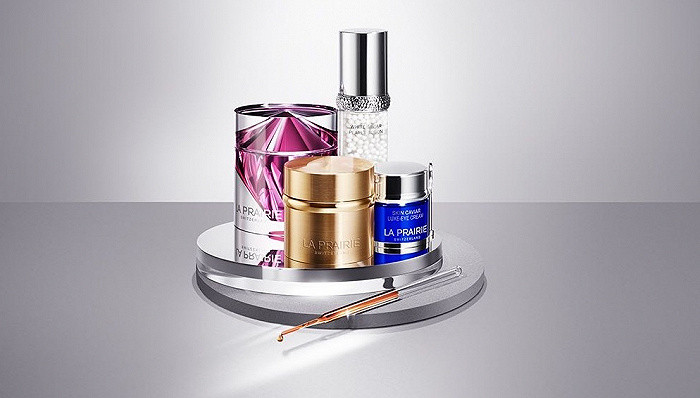Cosmetics Industry Responds to Resale Challenge Several top cosmetics companies have showcased the financial impact of their efforts to combat unauthorized reselling in their 2023 financial reports.
Recently, Beiersdorf Group reported its first-half financials for 2023, revealing a revenue increase of 12.3% year-over-year, amounting to 49 billion euros (equivalent to about 386 billion yuan). After accounting for special factors, the profit before interest and taxes stands at 17.3%.
Looking more closely, their core brand NIVEA experienced growth in all regions and categories, with an 18.4% year-over-year organic sales growth. Dermatology-level brands, including Eucerin and Aquaphor, saw an impressive 26.1% increase in organic sales.
However, the luxury skincare brand, La Prairie, faced challenges. In the first half of 2023, its unadjusted sales were 294 million euros (about 23 billion yuan), marking a 10.5% year-over-year decline.
Beiersdorf attributed this slump in La Prairie's performance to disruptions caused by resellers in the Asian travel retail market. The company expressed its support for the measures taken by the Chinese government against unauthorized reselling, despite the negative effects on its luxury cosmetics business in the second quarter.
If the influence of resellers in China and South Korea is discounted, La Prairie's second-quarter performance would shift from a 7.5% decline to a positive growth of 10%.
Indeed, many major cosmetic companies have recently highlighted the immediate effects of curbing unauthorized resale in their financial statements, emphasizing their determination to resist short-term gains to protect the long-term value of their brands.
Following the release of L'Oréal's mid-2023 report, they shared in a phone conference that the slowdown related to reselling in key markets like South Korea and China's Hainan has pressured their travel retail performance.
L'Oréal's Chief Financial Officer, Christophe Babule, did not disclose the percentage of travel retail sales attributed to South Korea and Hainan reselling. However, he did emphasize the group's commitment to maintaining the Chinese domestic market. L'Oréal has established a dedicated team that combines travel retail and local Chinese teams to ensure a balance between travel retail pricing and promotional measures without harming domestic taxable business.
Moreover, LVMH's CEO Bernard Arnault and CFO Jean-Jacques Guiony both demonstrated a clear stand against cosmetics reselling in post-2022 financial report analyst calls.
Arnault illustrated how, over the past three years, major duty-free shops in South Korea were empty due to the absence of Chinese tourists, yet they still recorded significant revenue. This was largely because products were shipped directly from warehouses to professional resellers who then sold them at discounted prices to China.
Guiony was clear in his stance that, to protect the brand assets, LVMH has decided to globally eliminate parallel channels related to their cosmetic brands. Consequently, the annual profit of LVMH's perfume and cosmetics division decreased by 3% due to these anti-reselling measures.
In the aftermath of this decline in resale business, the true test lies in how luxury brands can retain loyal customers and sustain long-term value.
Beiersdorf disclosed in their financial meeting that their resale business plummeted by 87% in the second quarter, impacting both their luxury brands, La Prairie and Chantecaille.
The company forecasts that the South Korean and Hainan markets will normalize from the effects of reselling by the fourth quarter. The slow recovery trend of the mainland Chinese market is expected to continue into the third quarter unless a robust consumer trend emerges before the fourth quarter. Nevertheless, Beiersdorf remains optimistic about the long-term prospects of the mainland Chinese market.
As a result, Beiersdorf plans to open 20 new stores in China in 2023, expanding into four new cities to reach a broader consumer base. By the mid-year report, they had already launched eight new stores.
However, the setback of its premium brands might not solely be due to reselling. Behind the short-term challenges posed by unauthorized resellers, Beiersdorf should genuinely consider how to reinforce the image of their luxury brands. At least in the Chinese market, Chantecaille's entry was too late, and La Prairie is losing traction.
Chantecaille first entered the Chinese market in 2018, launching official sales channels through Tmall's overseas flagship store and later establishing physical presence via high-end imported cosmetics store BONNIE & CLYDE.
In 2021, after Beiersdorf acquired Chantecaille, the Chinese market became a focal point for expansion. Two years later, Chantecaille still operates in China primarily through cross-border e-commerce, and its offline channels have only expanded to include the distributor SKP-S.
Reviewing La Prairie's social media accounts, one notices that their marketing closely mirrors foreign images and text, showing little sign of localized marketing strategies. While La Prairie has been successful in China by branding itself as a luxury "high-society" product, both due to its high prices and its unique "caviar" selling point, the increasingly competitive luxury cosmetics landscape and the rising savviness of Chinese consumers means that the brand is lacking in memorable features.
La Prairie can continue to rely on its legacy to survive in the Chinese market. However, to constantly attract new users willing to pay a premium for their products, the brand needs to evolve its narrative.






